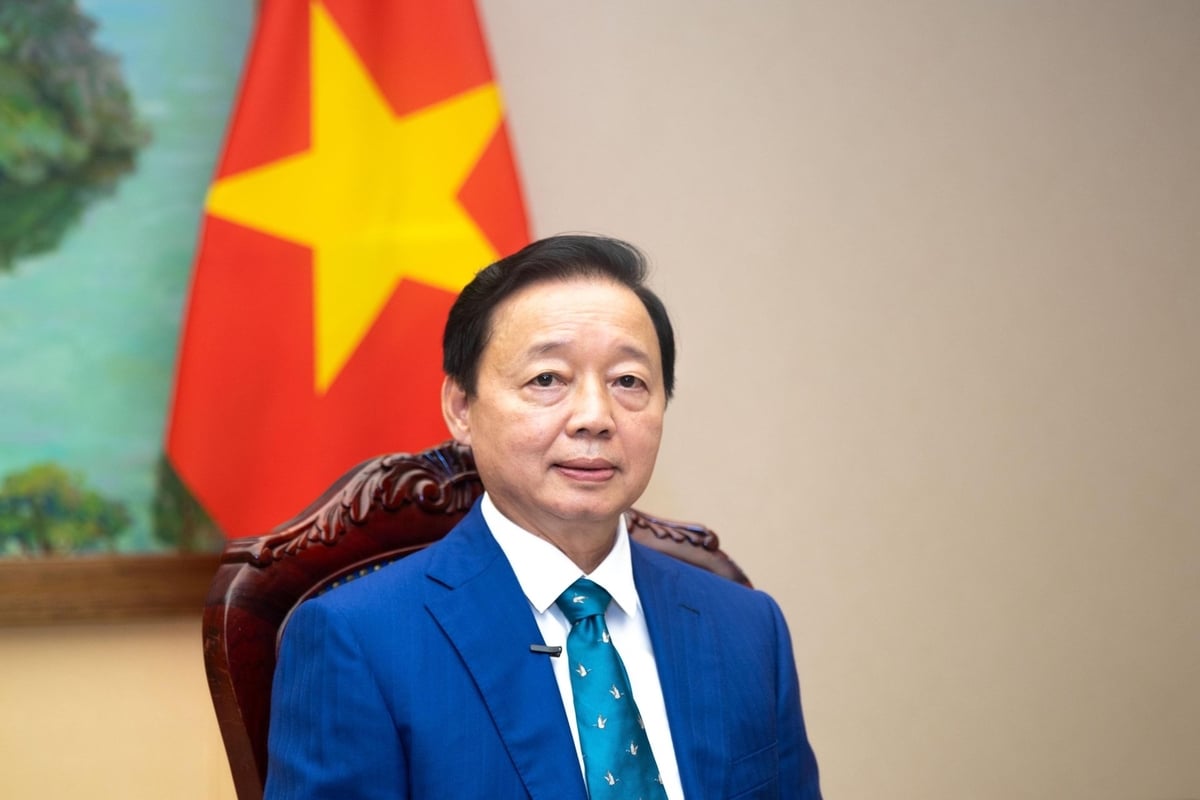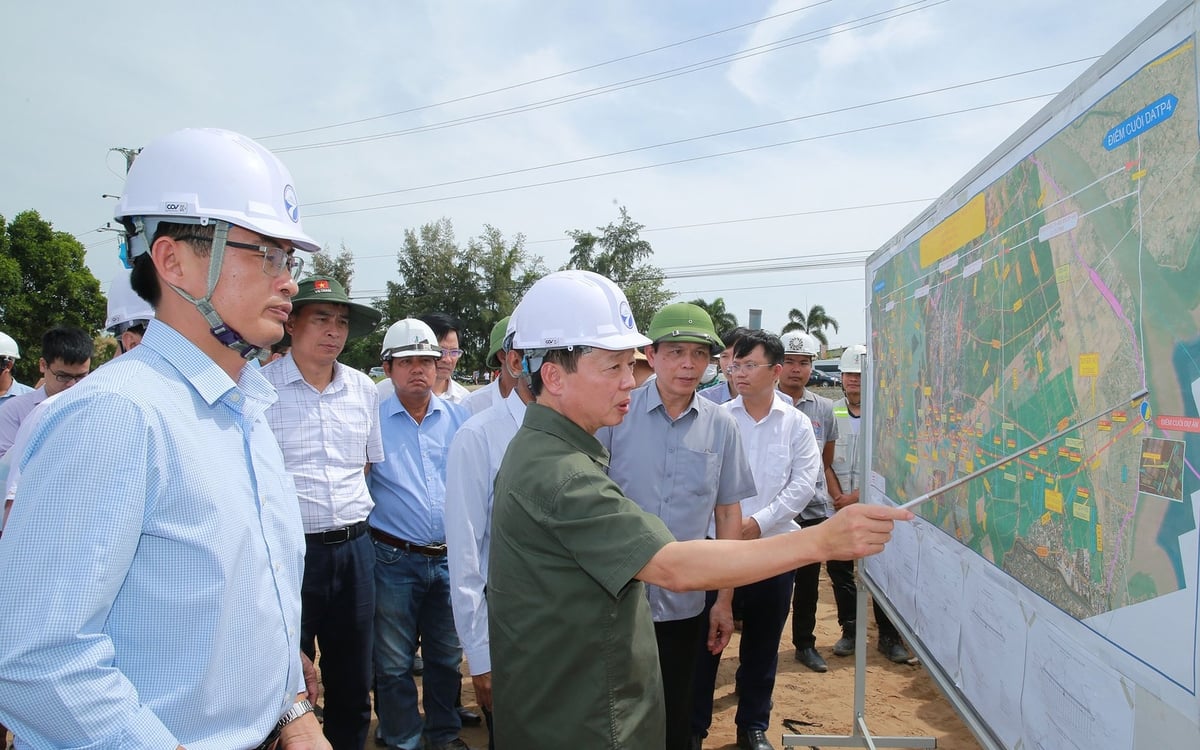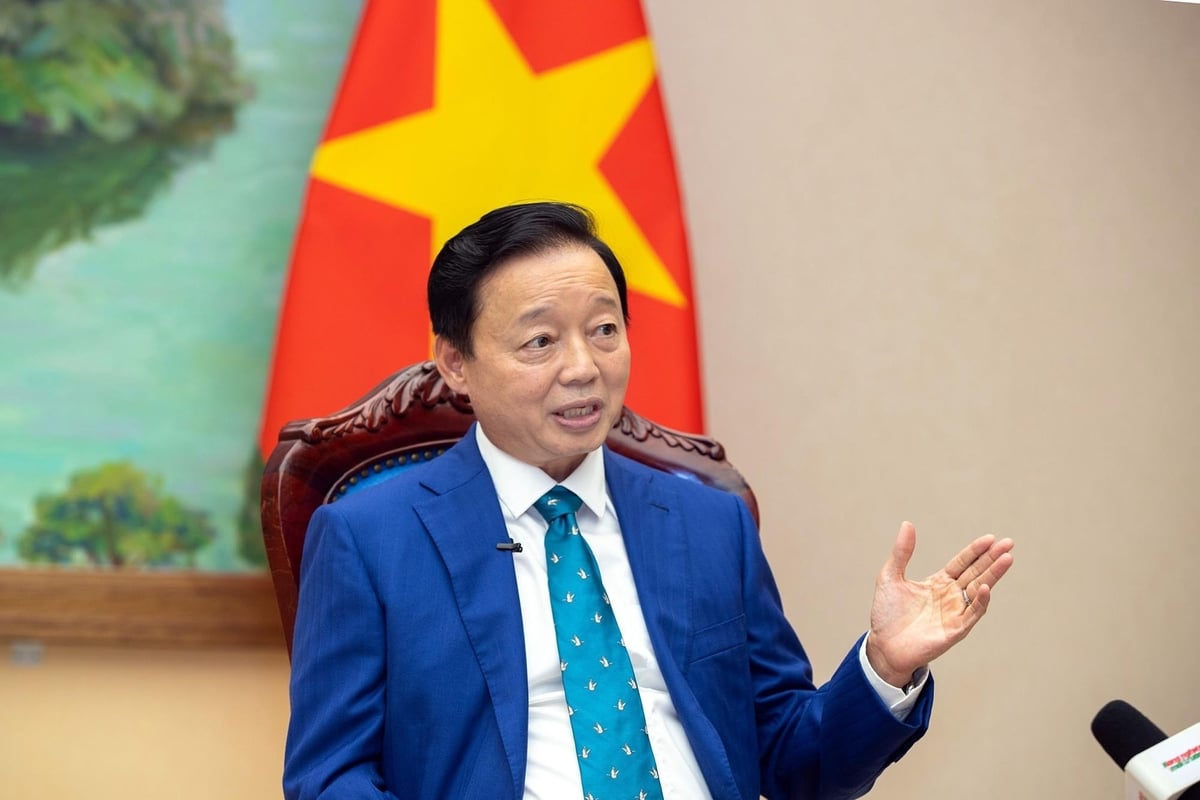December 1, 2025 | 11:55 GMT +7
December 1, 2025 | 11:55 GMT +7
Hotline: 0913.378.918
December 1, 2025 | 11:55 GMT +7
Hotline: 0913.378.918
VAN News: Deputy Prime Minister, the Ministry of Agriculture and Environment has just been established through the merger of the Ministry of Natural Resources and Environment and the Ministry of Agriculture and Rural Development. How do you assess the roles and contributions of the two ministries before the merger?
Deputy PM Tran Hong Ha: This is the unification of two multi-sector, multi-field ministries, both playing an especially important role and having made significant contributions to the nation’s overall development.
From policies and legal frameworks to strategies, master plans, and action plans, both ministries have effectively advised to ensure that their respective sectors not only contribute to sustainable development but also lay the foundation for steps aligned with global trends. We have shifted from a passive to a proactive stance in the sustainable exploitation and use of resources, environmental protection, and climate change adaptation.

Deputy Prime Minister Tran Hong Ha talks with reporters of the Agriculture and Environment Newspaper. Photo: Khuong Trung.
Both ministries have been pillars, shaping and ensuring sustainable development towards a green, circular, low-carbon economy. Despite challenges such as the COVID-19 pandemic, natural disasters, climate change, trade disputes, and global conflicts, agriculture, resources, and the environment have been at the forefront of renewing mindsets and adapting to new trends.
Clear evidence lies in the achievements of the New Rural Development Program and poverty reduction efforts; Vietnamese agricultural products have established brands and entered many international markets. In the first half of 2025, the export value of agricultural and forestry products reached USD 34 billion and is expected to hit USD 70 billion by year-end—a record figure. Agriculture is not only the livelihood for over 60% of the rural population but also a new growth driver, making Vietnam a major exporter and ensuring global food security.
VAN News: What opportunities and challenges does the merger bring, Deputy Prime Minister?
Deputy PM Tran Hong Ha: I believe this is not only an organisational merger but also a combination of strategic thinking. The Ministry of Agriculture and Environment now has a unified, overarching management space, representing the Government in managing resources and nature, while linking with agricultural development—a vital and advantageous sector for Vietnam.
We are moving from agricultural production to an agricultural economy, encompassing production, services, and the industrialisation of agriculture, creating new industries such as agriculture linked with tourism. In the areas of environment, resources, and climate change, integrated management will help the ministry become the “conductor,” ensuring green, clean, circular, low-carbon development.
Notably, the draft report for the 14th National Party Congress, for the first time, affirms that the resources and environment sector is central alongside the economy, society, culture, national defense, security, and foreign affairs. The environment is a core element of green development thinking.
VAN News: With such a role, what lessons do you emphasise for the new phase?
Deputy PM Tran Hong Ha: Many sectors within the ministry have long-standing traditions, highly valued by President Ho Chi Minh since the nation's early days. The important lesson is to inherit tradition, promote unity, and renew thinking.
We must be capable of pioneering and leading management. We must go ahead and provide direction so the country can develop in the new era with a green environment, sustainably exploited resources, and new economic values.
We must focus our intellect, valuing science, technology, and innovation as sharp “weapons.” We need to rely on science to advise on institutions, create mechanisms to promote the green economy, digital economy, and green transition. The ministry holds important resources such as data, maps, and digital transformation capacity. We must take the lead in applying artificial intelligence, the Internet of Things, and Viettimes technology to modernise management, accounting, and sustainable resource use.

Deputy Prime Minister Tran Hong Ha inspected the final point of the Chau Doc-Can Tho-Soc Trang expressway project connecting with Tran De seaport on November 20, 2024. Photo: Chinhphu.vn.
In addition, many countries have already developed green, circular, and digitally transformed economies with advanced technology. Vietnam should leverage international cooperation to exchange and learn. Recently, the ministry has shown a strong commitment by participating in global initiatives such as the Just Energy Transition, greenhouse gas emission reduction, and the one-million-hectare low-carbon rice project.
We must shift from a prohibitive mindset to one that creates space for innovation and encourages businesses and citizens. This requires modernising management, reforming procedures, and applying technology and AI to improve efficiency.
VAN News: On the occasion of the first Party Congress of the Ministry of Agriculture and Environment, what are your directions for the sector’s future development?
In agriculture and rural areas, we must continue to effectively implement the agricultural economy, affirming our strengths based on Vietnam’s natural resources, land, and people. We need to move from passive disaster response to proactively applying science and technology to shape policies, live with droughts and floods, and adapt to human-induced impacts.
Agricultural production should aim for a modern, knowledgeable farmer who cooperates with scientists and can become an entrepreneur, producer, scientist, and marketer. Only then can our agricultural products ensure food security while meeting higher nutritional and health standards, increasing added value, and enabling farmers to prosper on their own land. At the same time, forests, rivers, and friendly farmlands must be managed sustainably, creating a complete ecosystem indispensable to life.

The Ministry of Agriculture and Environment has a complete, comprehensive, and unified management space in representing the Government and the State in managing natural resources and nature. Photo: Khuong Trung.
The Ministry of Agriculture and Environment now has a complete, unified management space on behalf of the Government and State to manage resources and nature. The agriculture and environment sectors must build on existing advantages and opportunities, with nationwide support, to restore, conserve, and develop, while implementing the climate change strategy. This strategy will help Vietnam, though a latecomer, become an advanced country by transitioning from traditional energy to renewable energy and applying the circular economy in all sectors.
I believe the knowledge economy will replace the mindset of exhaustive resource exploitation. Although natural resources are finite, recovery and sustainable development based on the ecological economy is the right direction.
We must not be passive but proactively lead this transition. When we successfully transition to a green economy, circular economy, and green energy, environmental and climate change issues will become shared goals for businesses and citizens.
VAN News: Thank you, H.E. Deputy Prime Minister!
On August 14 in Hanoi, the plenary session of the First Party Congress of the Ministry of Agriculture and Environment for the 2025–2030 term took place. The congress set the goal of developing a modern green economy by 2030 and contributing to building a strong and prosperous Vietnam by 2045.
Attending the congress were Mr. Tran Hong Ha, Member of the Party Central Committee, Member of the Party Committee of the Government, Deputy Prime Minister; leaders of central ministries and agencies; former leaders of the Ministry of Agriculture and Rural Development and the Ministry of Natural Resources and Environment; and 259 official delegates representing over 10,000 party members from 82 party organisations under the Party Committee of the Ministry of Agriculture and Environment.
Translated by Linh Linh

(VAN) The Provincial Competitiveness and Governance Index (PCGI) is a tool designed to reflect the quality of local governance.

(VAN) An environmental expert has outlined eight strategic actions for Vietnam to successfully meet its commitment to achieve Net Zero emissions by 2050.

(VAN) After the institutional merger, Da Nang possesses significant forest-carbon reserves and is proactively engaging in the carbon market, creating a new revenue stream.

(VAN) An Giang strengthens communication against IUU fishing, increases inspections and sanctions, and is determined to remove the EC’s “yellow card” while developing a sustainable fisheries sector.

(VAN) As green transition becomes a global trajectory, Viet Nam’s biggest challenge is not only technology and models, but how to ensure that capital flows reach the right beneficiaries.

(VAN) The Ministry of Agriculture and Environment must spearhead the construction of green governance, spanning decision-making processes and investment standards to policy evaluation mechanisms.

(VAN) The Agriculture and Environment sector of Khanh Hoa has achieved numerous milestones over the past 80 years, contributing significantly to the goal of establishing the province as a centrally governed city by 2030.